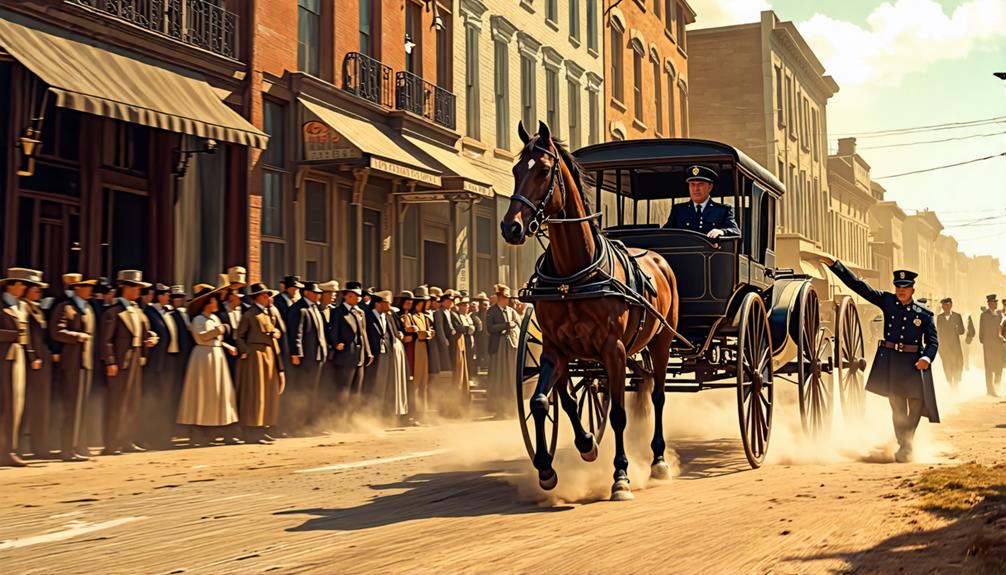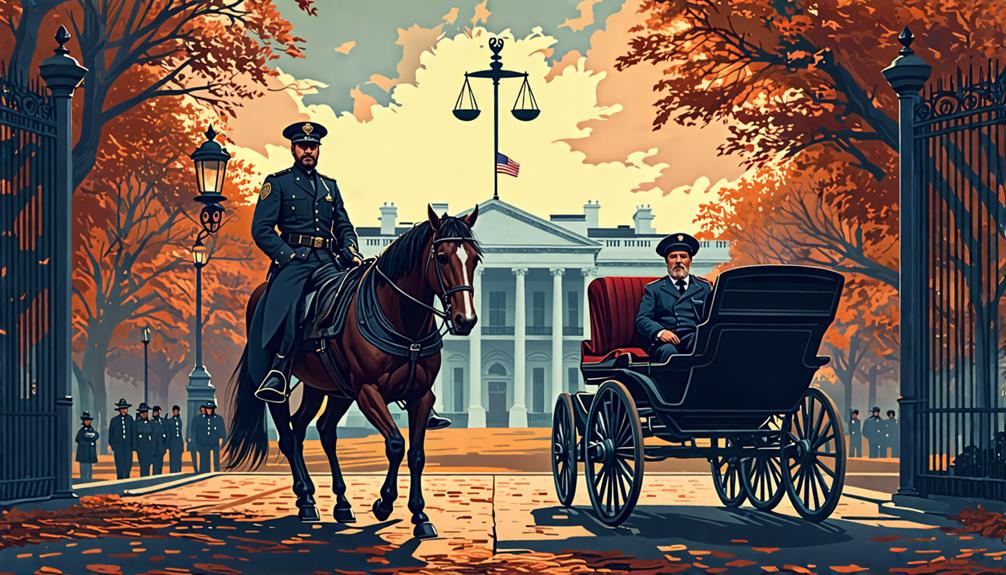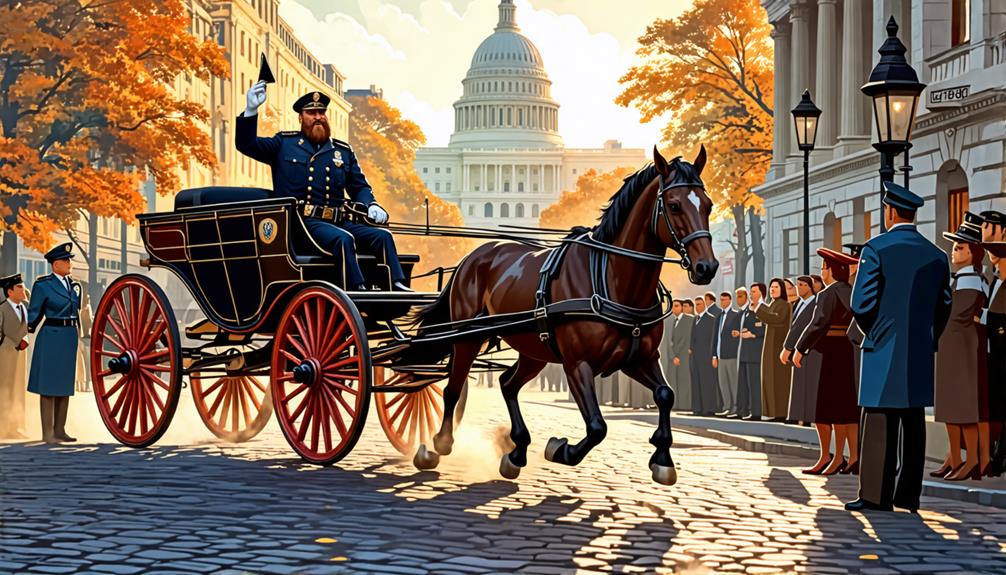You might think that presidential immunity shields the nation's leader from all legal consequences, but Ulysses S. Grant's speeding incident proves otherwise. In 1872, while serving as the 18th President of the United States, Grant found himself on the wrong side of the law for a rather unexpected reason. His brush with a local police officer not only made headlines but also set a precedent for presidential accountability. This peculiar event raises intriguing questions about the balance between executive power and the rule of law. What exactly happened that day, and how did it shape the American perception of presidential authority?
Key Takeaways
- President Ulysses S. Grant was arrested on May 6, 1872, for speeding in a horse-drawn carriage in Washington, D.C.
- Grant exceeded the 6 mph speed limit, leading to his arrest by Officer William West, a Black Civil War veteran.
- The president was fined $20 for the offense, which he paid to avoid spending the night in jail.
- This incident marked the first time a sitting U.S. president was arrested, emphasizing that no one is above the law.
The Speeding Incident

In a surprising turn of events, President Ulysses S. Grant found himself on the wrong side of the law when he was arrested for speeding in his horse-drawn carriage on May 6, 1872. You might wonder how a President could end up in such a predicament. Well, it happened at the intersection of 13th and M streets in Washington, D.C., where Grant exceeded the 6 mph speed limit.
Officer William West, the police officer on duty, faced a dilemma. Despite his regret, he had to uphold the law and arrest the President. Grant, respecting the officer's authority, complied with the arrest.
To avoid spending the night in jail, he paid a $20 fine as collateral and returned to the White House. This incident marked Grant as the first sitting U.S. President to be arrested, emphasizing that no one's above the law.
Grant's Encounter With Officer West
When Officer William Henry West encountered President Ulysses S. Grant speeding through Washington, D.C., he faced a unique challenge that would test his commitment to justice and equal treatment under the law. As a Black Civil War veteran, West's decision to arrest the sitting U.S. president for speeding set an example of duty and authority.
| Grant | West | Outcome |
|---|---|---|
| Speeding | Warned | First encounter |
| Racing | Arrested | Second offense |
| Calm | Professional | Mutual respect |
| Acknowledged | Commended | Recognition |
| President | Police officer | Equal treatment |
You'll find that West's actions demonstrated the complexities of post-Civil War society. By treating Grant like any other citizen, he upheld the principle that no one is above the law. Grant's gracious response further reinforced the importance of accountability, even for those in the highest office.
Legacy of Presidential Accountability

Grant's speeding arrest set a powerful precedent for presidential accountability that's echoed through American history. As the first sitting U.S. president to be arrested, General Grant demonstrated that even the highest office isn't above the law. His calm acceptance of the fine reinforced the authority of the legal system and law enforcement.
You'll find that this incident continues to shape discussions about the responsibilities of public officials. It underscores the principle that accountability applies to all, regardless of position. Grant's arrest serves as a reminder that integrity in leadership involves respecting the same rules that govern citizens.
The mixed public reaction to Grant's arrest highlights the ongoing debate about presidential accountability. It's a proof of the enduring importance of this principle in American democracy, ensuring that those in power remain answerable to the law and the people they serve.
Conclusion
You've learned about a unique moment in American history where a sitting president faced the law like any other citizen.
Grant's arrest for speeding in a horse-drawn carriage might seem comical today, but it set a powerful precedent.
It showed that even the highest office isn't above the law.
Next time you're tempted to speed, remember: if they'll stop a president, they'll certainly stop you!

Leave a Reply